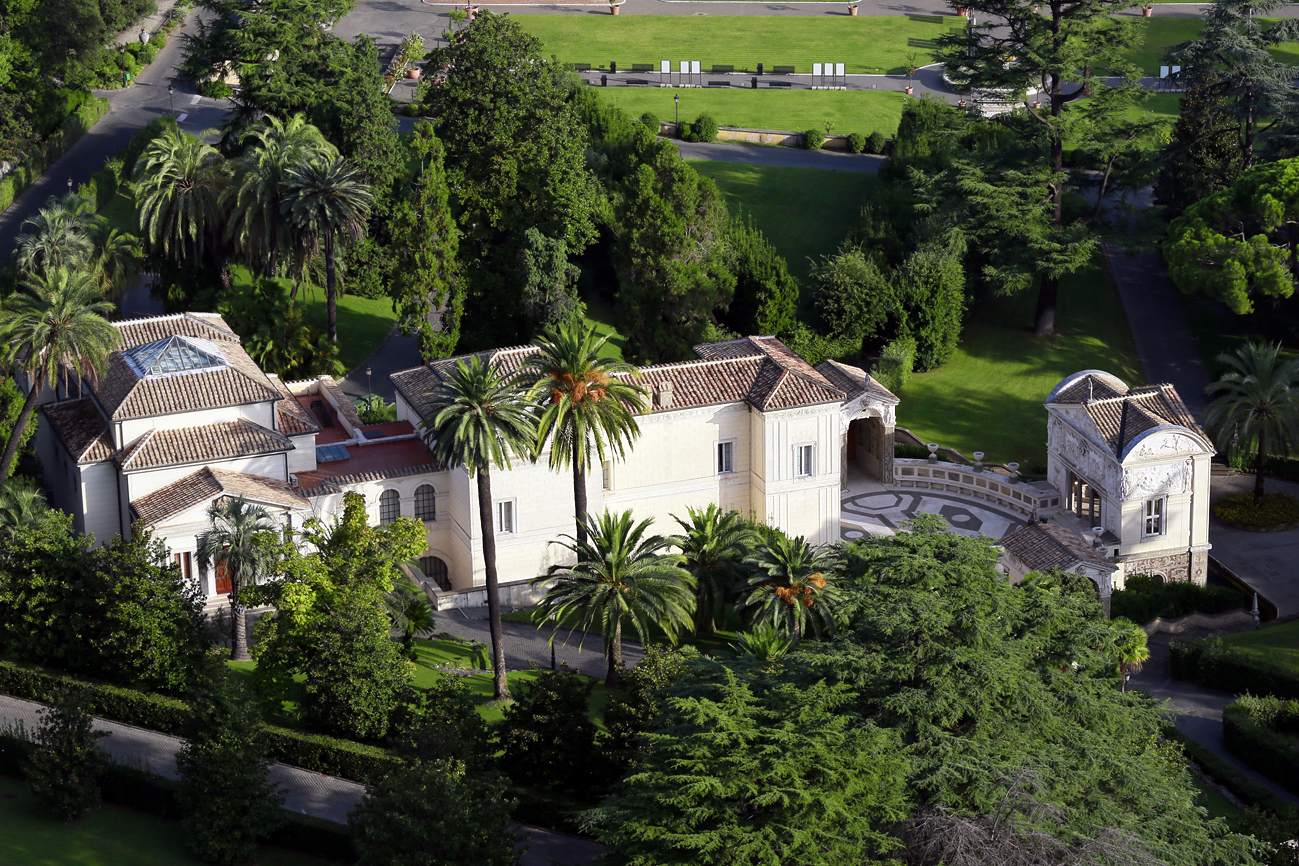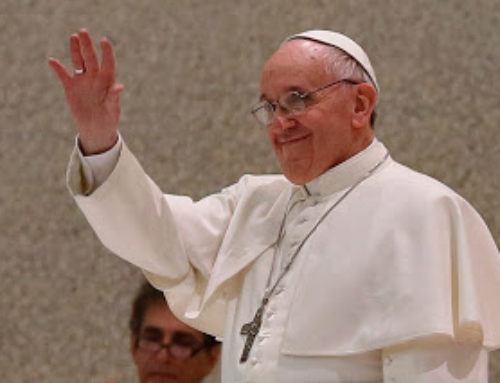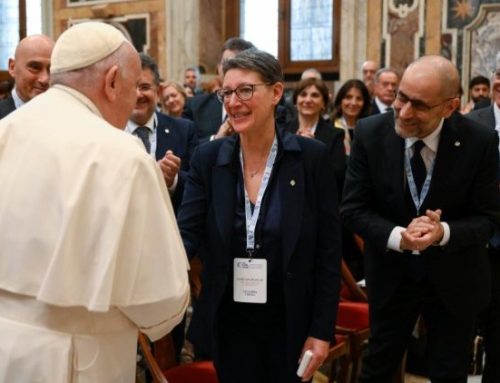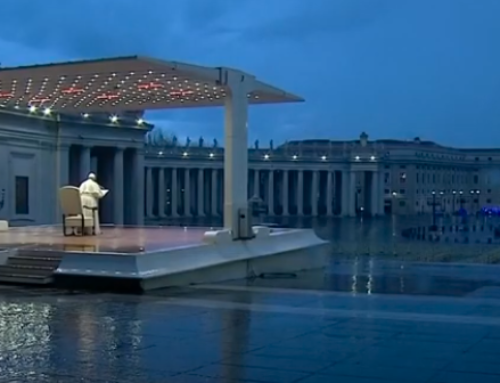The Vatican, Casina Pio IV on March 20th, 2020
Responding to the Pandemic, Lessons for Future Actions and Changing Priorities
A Statement by the Pontifical Academy of Sciences and the Pontifical Academy of Social Sciences
In view of the COVID-19 pandemic, the Pontifical Academies of Sciences and of Social Sciences issue this communication. We note with great appreciation the tremendous services currently provided by health workers and medical professionals, including virologists and others. COVID-19 is a challenge for societies, their health systems, and economies and especially for directly and indirectly affected people and their families. In the history of humanity, pandemics have always been tragic and have often been deadlier than wars. Today thanks to science, our knowledge is more advanced and can increasingly defend us against new forms of pandemics. Our statement intends to focus on science, science policy, and health policy actions in a broader societal context. We draw attention to needs for action, short- and long-term lessons, and future adjustments of priorities with these five points:
- Strengthen early action and early responses:
- Health systems need to be strengthened in all countries. The need for early warning and early response is a lesson learned so far from the COVID-19 crisis. It is vitally important to get ahead of the curve in dealing with such global crises. We emphasize that public health measures must be initiated instantaneously in every country to combat continuing spread of this virus. The need for testing at scale is to be recognized and acted upon, and the persons who test positive for Covid 19 as well as their close contacts must be quarantined.
- We had advance warning of the crisis that hits us now at a global scale, for at least some months. In future, we need to better coordinate efforts at both the political and health care fronts to prepare and protect the population.
- Responsible, transparent, and timely communication by governments, public institutions, science communities, and the media (incl. social media) was not assured but is of eminent importance for appropriate action. International organisations like WHO and UNICEF, but also academies of sciences need to be supported in their communication competencies so that they can compete, with scientific evidence based information, against the cacophony of unproven assumptions circulating throughout the world.
- Empowerment of civil society is needed because the resolution of the present threats requires not only global cooperation but also distributed actions that can only be undertaken satisfactorily by local communities. Given that personal face-to-face contacts are impossible in pandemics, efforts need to be made to apply and to further improve communications technologies.
- Expanding support of science and actions by scientific communities:
- Strengthening basic research enhances the capacity to detect, to respond, and to ultimately prevent or at least mitigate catastrophes, such as pandemics. Science needs to be better funded at a national and transnational level, so that scientists have the means to pursue finding the right drugs and vaccines. Pharmaceutical companies have a key responsibility to produce those drugs at scale if possible.
- Scientists in all nations tend to serve already with a global perspective when generating preventions and cures. This humane attitude needs further support. Professional associations and science academies need to ask themselves if and how they can serve better in cooperation with international agencies such as WHO and others.
- An important research area is understanding the root causes of and prevention of zoonotic diseases, i.e. infectious diseases caused by bacteria, viruses, or parasites that spread from animals to humans. The food-related animal production systems may need to be reshaped to reduce the risks of zoonotic breeding grounds. We need also to know more about the psychological foundations of human behavior in situations of collective stress in order to decide on appropriate governance strategies in crises.
- Protect poor and vulnerable people:
- COVID-19 is a common threat that may harm one country sooner than another but will eventually harm us all. Health workers fighting in the front lines during pandemics need all the support and protection that is possible. The majority of health workers are women, often put most at risk, and suffer the same injustices as in other areas of work. This must stop.
- We are concerned about selfishness and shortsightedness of uncoordinated national responses. This is the time to prove that the “Family of Nations” (Paul VI and John Paul II) or the “Family of Peoples” (Pope Francis) are communities of values with a common origin and shared destiny.
- Broad-based policy action is needed in all countries to protect poor and vulnerable people from the virus by public health actions. COVID-19 will adversely impact also the economy world wide. Unless mitigated, the expected disrupting consequences on food production and supply and numerous other systems will hurt especially the poor.
- The pandemic represents a threat to the millions of refugees, migrants and the forcibly displaced. We implore the global community to redouble our efforts to protect these most vulnerable people amongst us.
- The needed focus on keeping COVID-19 at bay can have large consequences on others suffering from other diseases. Complex ethical issues arise at the global, national, and local level in the health practice, when first-come-first-serve action rules may break down. This is a general issue, but it needs to be considered more in a situation of crisis and needs joint engagement by science and ethics.
- Shaping global interdependencies and help across and within nations:
- Decades of increasing interconnectedness have opened up the world to massive cross-border flows of goods, services, money, ideas, and people. Under normal circumstances these developments enhance wellbeing and prosperity for large proportions of the world’s population. Now, under non-normal circumstances, we experience the adverse consequences and fragility of interconnectedness. The sheer scale and scope of the current globalism has made the world unprecedentedly interdependent – and thus vulnerable and dysfunctional during crises. Currently, the crisis of COVID-19 prompts people to demand more isolation. However, seeking protection through isolationism would be misguided and counterproductive. A trend to support would be a strong demand for greater global cooperation. Transnational and international organizations need to be equipped and supported to serve that purpose.
- Only governance based on sound scientific evidence and a solid basis of shared fundamental values can mitigate the consequences of such crises. Unless governments reduce their nationalistic interests, there is reason to expect a further aggravation of the health crisis and consequently a deep global recession, with profound and tragic implications especially for poor countries.
- Closing borders around affected hot spot areas is at times needed to reduce the fast spread of infections, but national borders must not become barriers that hindering help across nations. Human resources, equipment, knowledge about best practices, treatments, and supplies need to be shared.
- Global problems such as a pandemic or the less visible crises of global climate change and biodiversity loss demand a global cooperative response. We must note the relationships between human activities, the global ecology and livelihoods. Once COVID19 is under control, we cannot go back to business as usual: Thorough review of world views, ways of lives, and short term economic valuations is needed to cope with the challenges of the anthropocene. A more responsible, more sharing, more equalitarian, more caring and more just society is required if we are to survive.
- We insist that global crises demand collective action. The prevention and containment of pandemics is a global public good (Laudato Si‘) and protecting it requires increased global coordination as well as temporary and adaptive decoupling. At a time when rule-based multilateralism is in decline, the present crisis should encourage efforts to bring about a new – in the sense of different – model of globalization aimed at inclusive protection of all.
- Strengthening solidarity and compassion:
- We do not only have a scientific, technical and health policy agenda before us, but also one of social cohesion. Churches and all faith and value-based communities are called to action.
- A lesson the virus is teaching us is that freedom cannot be enjoyed without responsibility and solidarity. Freedom divorced from solidarity nurtures pure and destructive egoism. Nobody can rescue himself/herself alone. The experience with the COVID19 pandemic can be an opportunity to acquire a better awareness of how important good relationships are in our life.
- Today’s paradox is that we realize that each person needs to cooperate with others; yet, for health reasons it becomes necessary for individuals to isolate themselves from one another. However, this paradox is only apparent since the act of staying at home is an act of profound solidarity. It is to “love your neighbor as yourself”. The lesson transmitted to us by the pandemics is that liberty and equality become empty words without solidarity (Pope Francis).
Signed by
Joachim von Braun, President of the Pontifical Academy of Sciences (PAS). University of Bonn. Germany
Stefano Zamagni, President of the Pontifical Academy of Social Sciences (PASS). University of Bologna. Italy
Marcelo Sánchez Sorondo, Bishop Chancellor of the Pontifical Academies of Sciences (PAS) and of Social Sciences (PASS). Vatican
Werner Arber, Academician and member of Council of Pontifical Academy of Sciences. Former President of PAS. Professor, Biozentrum, University of Basel. Nobel Laureate in Physiology. Switzerland
Vanderlei Bagnato, Professor, Academician and member of Council of Pontifical Academy of Sciences, Department of Physics and Materials Science, University of São Paulo and the Institute of Physics of São Carlos. Brazil
Alma Mater Professor (PAM) of Sociology, Dept. of Political and Social Sciences, University of Bologna
Vittorio Hösle, Academician and Member of Council of Pontifical Academy of Social Sciences, Professor of Arts and Letters at the University of Notre Dame.
Francis L. Delmonico, M.D., Academician and member of Council of Pontifical Academy of Sciences, Professor of Surgery Harvard Medical School, Massachusetts General Hospital. Chair World Health Organization Task Force Donation and Transplantation of Organs and Tissues. USA
Pierpaolo Donati, Academician and Member of Council of Pontifical Academy of Social Sciences, Professor of Sociology, Dept. of Political and Social Sciences, University of Bologna, Italy
Nicole Le Douarin, Academician and member of Council of Pontifical Academy of Sciences, Professeur Honoraire au Collège de France, Secrétaire Perpétuelle Honoraire de l’Académie des Sciences. France
Roland Minnerath, Academician and Member of Council of Pontifical Academy of Social Sciences, Archbishop of Dijon, Historian. France
Salvador Moncada, Academician of Pontifical Academy of Sciences, Professor, MD, Research Domain Director for Cancer at the University of Manchester. UK and Honduras
Veerabhadran Ramanathan, Academician and member of Council of Pontifical Academy of Sciences, Scripps Institution of Oceanography, University of California at San Diego.
Martin Rees, Academician and member of Council of Pontifical Academy of Sciences, former Astronomer Royal, and Master of Trinity College Cambridge, and President of the Royal Society. UK
Edward M. De Robertis, Academician and member of Council of Pontifical Academy of Sciences, Distinguished Professor, Biological Chemistry, University of California, Los Angeles. USA
Wolf Singer, Academician and member of Council of Pontifical Academy of Sciences, Professor of physiology at the Goethe University Frankfurt, and Max Planck Institute for Brain Research, Frankfurt, Germany
Marcelo M. Suárez-Orozco, Academician and Member of Council of Pontifical Academy of Social Sciences, Dean & Distinguished Professor of Education UCLA Graduate School of Education & Information Studies. USA
Ada Yonath, Academician and member of Council of Pontifical Academy of Sciences, Director of the Helen and Milton A. Kimmelman Center for Biomolecular Structure and Assembly of the Weizmann Institute of Science. Nobel Laureate in Chemistry. Israel
Paulus Zulu, Academician and Member of Council of Pontifical Academy of Social sciences: University of Kwa Zulu Natal. South Africa










